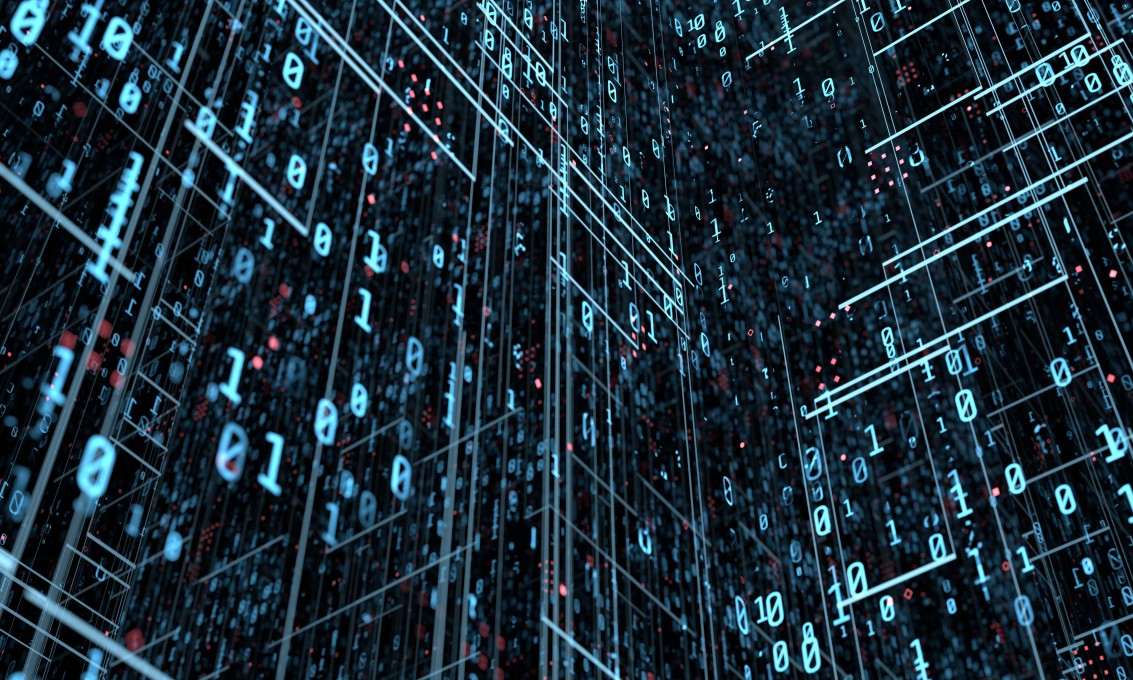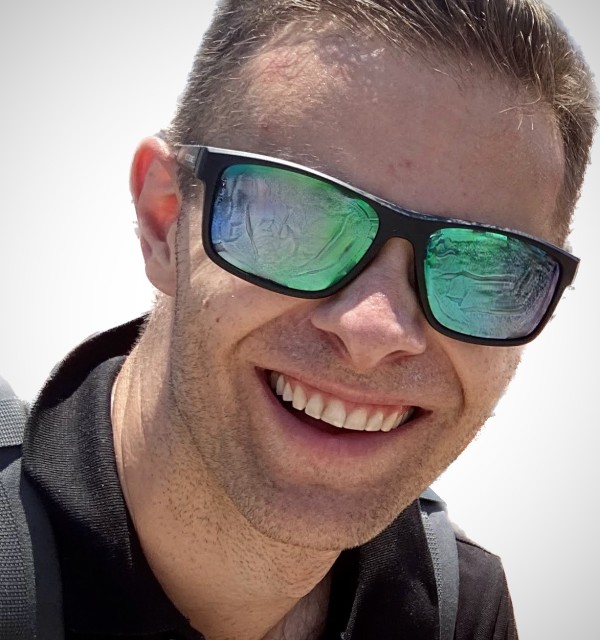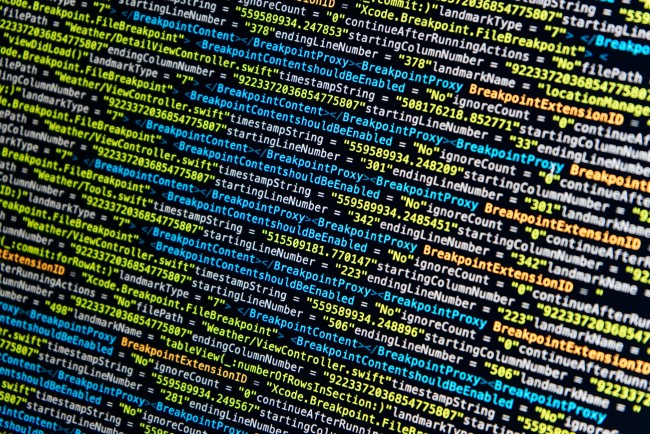Data Science is a Master's programme that aims to increase the ICT competence of engineers from different fields.
4 years/8 semesters
5
120
English


About the programme
The programme is offered as a 2-year full-time study and as a part-time study over 4 years.
This part-time study can be taken in combination with work or other activities for those who live in the region and can follow the educational plan provided. Courses are taken together with full-time students who complete the degree in two years, but as a part-time student you will have fewer courses per semester, distributed over four years. The part-time study takes place during the day and most of the courses are based on laboratory work and project work in groups with compulsory attendance. Lectures are usually not streamed, but books and other materials cover the syllabus. You will usually need 1-2 days per week (depending on the semester) to follow mandatory activities.
Data Science students will learn to extract relevant information from a compilation of large datasets from different sources. The ability to create, manage and exploit data has become one of the most important challenges for practitioners in most disciplines, sectors, and industries.
Students with expertise in Data Science will be highly sought after in the future labor market, where they will contribute to the development of smart solutions and digitization.
The new study comes in the wake of Big Data and the need to find useful information in them. Analysis, understanding, and use of these data require interdisciplinary skills and knowledge. Data Science creates opportunities for students from different engineering backgrounds who want to focus more on digitization and data analysis.
Data Science is crucial for creating smart solutions, such as the development of smart cities, smart energy, smart healthcare. Data Science specialises in information retrieval, data recovery and further in-depth study of statistics.
The Master's programme has a practical profile, where after specialisation in statistics and computer science you use algorithms on real data sets.
UiS has a strong research focus on analysis of large datasets, Cloud solutions, and machine learning.
UiS is offering break rooms, reading rooms and computer rooms especially reserved for the master students. There is also a student organization for these students, ISI, which is arranging both academic and social gatherings.
You may also be interested in
Career prospects
With a master’s degree in Data Science, you can get a position in almost all industries. Some examples of businesses where you can find employment are consulting companies, telecommunications companies, energy related businesses, hospitals, and other public agencies. Specialisation in Data Science provides a basis for work in data analysis and development of data processing systems for the whole data lifecycle. It builds knowledge and skills in advanced statistics, data mining, machine learning and processing of large data volumes.
Completed master’s degree in Applied Data Science provides the basis for admission the PhD programme in Information technology, mathematics and physics.
Learning outcomes
All study programmes at the UiS have a set of defined learning targets. Read more about the learning outcome for this study programme.
After having completed the master’s programme in Data Science, the student shall have acquired the following learning outcomes, in terms of knowledge, skills and general competences:
Knowledge
K1: Advanced knowledge within Data Science, which includes data processing, machine learning, data extraction, statistics and typical programming languages for the area, including: Pythonand R.
K2: Specialised insight into data analysis.
K3: In-depth knowledge of scientific theory and methods in Data Science.
K4: Apply knowledge about algorithms for statistical analysis, machine learning or data extraction in new areas within data science.
K5: Analyse professional issues based on the fourth science paradigm, 4Vs of big data (volume, velocity, variety, and variability), data-driven approach, CRISP-DM (cross-industry standard process for data mining).
Skills
S1: Analyse and relate critically to different sources of information, datasets and data processes; and apply these to structure and formulate data-driven reasoning.
S2: Analyse existing theories, methods and interpretations within the subject area and work independently in applying and evaluating different storage and data processing technologies.
S3: Use CRISP-DM and scientific methods to develop data analysis programs in an independent way.
S4: Conduct independent, limited data collection, analysis and evaluation according to established engineering principles in accordance with current research ethical standards.
General Competence
G1: Analyse relevant ethical issues arising from data usage and data recovery.
G2: Apply their knowledge and skills in new areas to carry out advanced tasks and projects related to data processing, data analysis and optimisation.
G3: Communicate results of comprehensive data analysis and development work, and master Data Science expressions.
G4: Communicate on issues, analyses and conclusions related to data-driven research and development, both with specialists and to the general public.
G5: Contribute to new ideas and innovation processes by introducing data-driven approaches, comprehensive data analysis and development work, and master Data Science expressions.
Academic requirements
A Bachelor's degree in engineering or equivalent is required. The degree must include at least:
- 10 ECTS credits in programming + 10 ECTS informatics/computer science
- All applicants must have the equivalent of 25 ECTS credits in mathematics, 5 ECTS credits in statistics and 7,5 ECTS credits in Physics
In case programming and computer engineering subjects cannot be confirmed through the The Bologna Process Framework for Learning Outcomes, at least 50 credits in programming and computer engineering subjects will be required.
Only degrees from accredited universities from the following countries are confirmed through the Bologna Process: List of countries.
If the country where you completed your degree is not included in the list above, a minimum of 50 credits in programming and computer engineering subjects is required.
If you have completed studies/courses outside the University of Stavanger, you must upload course descriptions that have clearly defined curriculum (learning outcomes). The course names and codes on the course descriptions must match the transcript of records. If you do not provide course descirptions, you might risk your application to not be prioritized.
Admission to this master's programme requires a minimum grade average comparable to a Norwegian C (according to ECTS Standards) in your bachelor's degree. Applicants with a result Second-class lower Division or lower are not qualified for admission.
Application and admission
Important information
Only Nordic citizens and applicants residing in Norway can apply to MSc in Data Science, part-time.
Open for applications between 1 February and 15 April
(NB! The deadline for applicants with foreign educational background is 1 March.)
Apply through Søknadsweb.
Contact
For inquiries regarding admission, send an email to masteropptak@uis.no.
Study plan and courses
Enrolment year: 2024
-
Compulsory courses
-
Cloud Computing Technologies
Year 1, semester 1
-
Introduction to Data Science
Year 1, semester 1
-
Algorithm Theory
Year 1, semester 2
-
Data-intensive Systems and Algorithms
Year 2, semester 3
-
Statistical Modeling and Simulation
Year 2, semester 3
-
Machine Learning
Year 2, semester 4
-
Data Mining and Deep Learning
Year 3, semester 6
-
Master's thesis in Data Science
Year 4, semester 7
-
-
5th or 7th semester at UiS or Exchange Studies
-
Courses at UiS 5th and 7th semester
-
Choose one course
-
Investment Analysis
Year 3, semester 5
-
Project Management
Year 3, semester 5
-
-
Recommended electives 5th and/or 7th semester
-
Discrete Simulation and Performance Analysis
Year 3, semester 5
-
Information Retrieval and Text Mining
Year 3, semester 5
-
Probability and Statistics 2
Year 3, semester 5
-
Statistical Learning
Year 3, semester 5
-
-
Other electives 5th and/or 7th semester
-
Reinforcement Learning
Year 3, semester 5
-
Project in Computer Science
Year 3, semester 5
-
Deep Neural Networks
Year 3, semester 5
-
-
-
Exchange Studies 5th or 7th semester
-
Exchange Studies 5th or 7th semester
-
-
Frequently asked questions
Questions about the study programme? Find more information here.
What do you learn when you choose Computer Science?
Master’s program in Computer Science teaches you the management, design and programming of computer systems. The ability to integrate knowledge and skills in security, reliability and scalability together with algorithm theory and statistics is necessary to respond to challenges in computer systems in all industries.
The program provides a basis for work with the development and planning of commercial computer systems for various purposes. You gain knowledge and skills in network security, reliability of distributed systems, simulation and modeling.
What do you learn when you choose the Data Science program?
Master’s program in Data Science teaches you to extract relevant information from a compilation of large data sets from different sources. The ability to create, manage and utilize data has become one of the most important challenges for practitioners in almost all disciplines, sectors and industries.
Data Science provides a basis for work in data analysis and development of data processing systems for the entire data life cycle. You gain knowledge and skills in advanced statistics, data mining, machine learning and processing large amounts of data. The study will be highly sought after in the future labor market, with the development of smart solutions such as in smart cities, with smart energy and digitalisation.
Student exchange
By going on exchange to one of our partner institutions abroad as part of your studies, you will have an opportunity to get a unique education. In addition to improving your career opportunities, you grow as a person and gain the ability to greater reflect on the topics you study as part of your degree. All about exchange
Going abroad is a possibility for all UiS students, although special arrangements may be necessary for part-time students.
For more information, see Master of Science in Data Science.
Contact
Faculty Administration TN
Kontor for utdanningsadministrative tjenester
Department of Electrical Engineering and Computer Science
Department of Electrical Engineering and Computer Science
Welcome to the Department of Electrical Engineering and Computer Science!
The department is responsible for teacing, research and development within electrical and computer engineering at UiS. As computer technology becomes increasingly important in society, so this department keeps growing in size and expanding its activities.
Relevant studies
The department of Electrical Engineering and Computer Science offers a growing range of studies, from bachelor to Phd level.
The master programme in Computer Science is international and taught in English.
News from the department
Department of Electrical Engineering and Computer Science
Department of Electrical Engineering and Computer Science is responsible for teaching, research and development within e...




